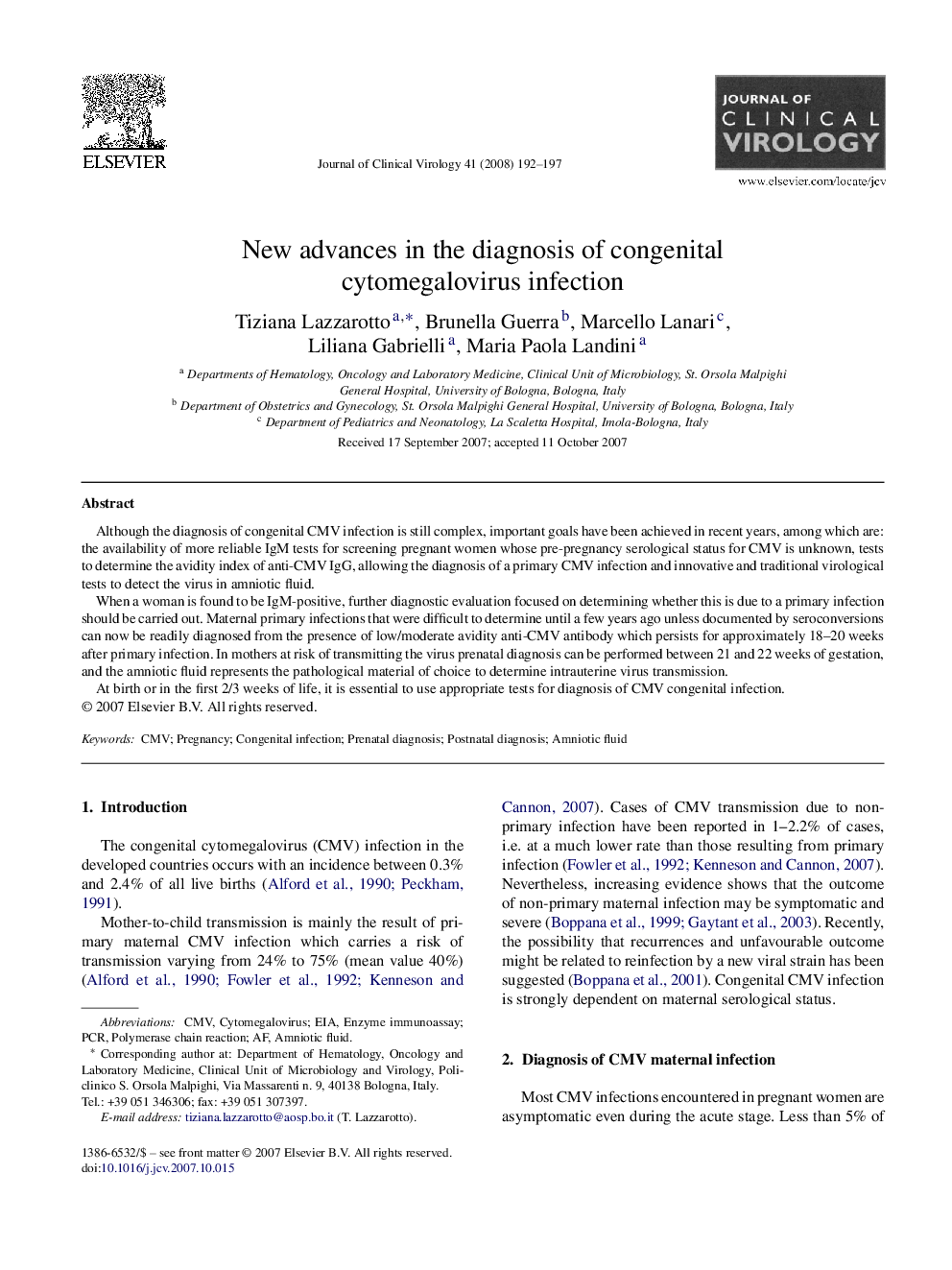| Article ID | Journal | Published Year | Pages | File Type |
|---|---|---|---|---|
| 3370084 | Journal of Clinical Virology | 2008 | 6 Pages |
Although the diagnosis of congenital CMV infection is still complex, important goals have been achieved in recent years, among which are: the availability of more reliable IgM tests for screening pregnant women whose pre-pregnancy serological status for CMV is unknown, tests to determine the avidity index of anti-CMV IgG, allowing the diagnosis of a primary CMV infection and innovative and traditional virological tests to detect the virus in amniotic fluid.When a woman is found to be IgM-positive, further diagnostic evaluation focused on determining whether this is due to a primary infection should be carried out. Maternal primary infections that were difficult to determine until a few years ago unless documented by seroconversions can now be readily diagnosed from the presence of low/moderate avidity anti-CMV antibody which persists for approximately 18–20 weeks after primary infection. In mothers at risk of transmitting the virus prenatal diagnosis can be performed between 21 and 22 weeks of gestation, and the amniotic fluid represents the pathological material of choice to determine intrauterine virus transmission.At birth or in the first 2/3 weeks of life, it is essential to use appropriate tests for diagnosis of CMV congenital infection.
